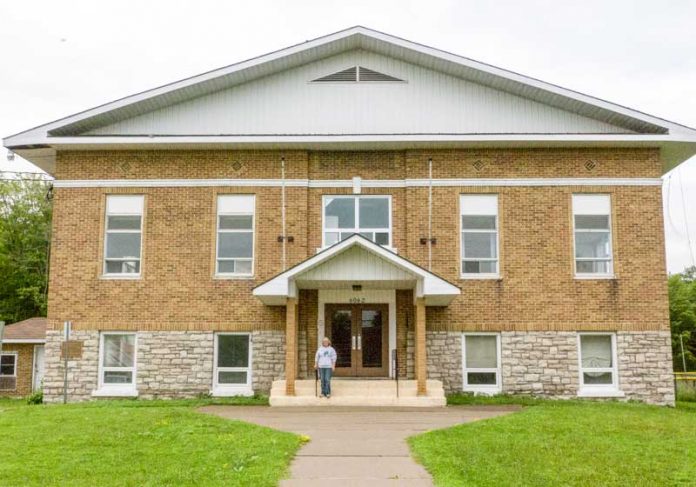ONTARIO—Ontario municipalities, including those on Manitoulin Island will be pleased with the news that the Ontario Municipal Partnership Fund (OMPF) is being maintained for 2020.
“It is reassuring to know that rural Northern Ontario funding is being maintained,” stated Ken Noland, reeve of Burpee and Mills Township to the funding announcement made by the province last week. “But it is still concerning that the farm tax and managed forest provincial program and the tax exempt status granted to the NCC (Nature Conservancy of Canada) (for properties owned in a municipality) continues to be a burden to taxpayers and our municipality, as more land is granted to NCC every year.”
“The NCC is supposed to be good for all municipalities, by preserving lands for all of Canada. So why is it that only municipalities where these NCC properties are located have to face burdening costs instead of all municipalities sharing in the costs,” said Reeve Noland.
On October 25, at the Association of Municipalities of Ontario (AMO) fall Policy Forum, the Honourable Steve Clark, Minister of Municipal Affairs made several key announcements of interest to municipal governments across Ontario.
One of those being that Ontario’s government is listening to municipalities and delivering on its commitment to maintain the structure of the OMPF for the 2020 municipal budget year.
Next year, the province will invest $500 million in 389 municipalities across Ontario through the OMPF. The program primarily supports Northern and rural communities. This funding can be used for local priorities, to support the specific needs of each community.
“Municipalities told us that they need information early to plan their budgets, and we listened. That’s why we’re announcing the allocations for the 2020 OMPF today, the earliest they have ever been announced,” said Rod Phillips, Minister of Finance. “Today, we are confirming that building strong local partnerships with municipalities is an important part in our plan to build Ontario together.” This news fulfills a commitment made by Premier Doug Ford during the AMO annual conference in August to maintain the structure of the OMPF program for 2020.
For 2020, the government is maintaining the OMPF structure as it was in 2019, while allowing for annual data updates and adjustments.
In 2020, the province is providing the Township of Assiginack with $687,000 in funding through the OMPF, which is equivalent of $790 per household; The Township of Billings will receive $505,300 in funding, the equivalent of $690 per household; Burpee and Mills will receive $294,900, the equivalent of $855 per household; Central Manitoulin will receive $1,379,500, the equivalent of $778 per household; the unorganized municipality of Dawson-Robinson is being provided $506,800, the equivalent of $1,667 per household; the municipality of Gordon-Barrie Island will receive $627,800 in OMPF funding, which is the equivalent of $881 per household; The Town of Gore Bay will receive $464,300 in funding, the equivalent of $1,046 per household; the Municipality of Killarney will receive $455,600 in funding, the equivalent of $485 per household; the Municipality of Northeastern Manitoulin and the Islands will receive $1,591,500 in funding through OMPF, the equivalent of $723 per household; the Township of Tehkummah will receive $369,900 in funding through OMPF, the equivalent of $944 per household. The Township of Cockburn Island has not filed its 2018 Financial Information Return (FIR). In the absence of this report, the Ministry of Finance could not determine the Township of Cockburn Island’s 2020 allocation. Cockburn Island’s 2020 OMPF allocations will be confirmed once the outstanding FIR has been filed.
Mr. Clark announced the government will provide $125 million over four years to 405 small and rural municipalities. This application-based funding will help municipalities conduct service delivery reviews and implement process improvements in the delivery of public services.
The government will begin consultations on aligning the provincial and municipal fiscal years. Currently, the municipal fiscal year in Ontario begins on January 1, while the provincial fiscal year begins on April 1. “AMO looks forward to working with the province to see if aligning the provincial and municipal budget years makes sense. It should create greater certainty as we establish our budgets,” a release notes.
It is also being proposed by the province that responsibility for the voters list shift from the Municipal Property Assessment Corporation to Elections Ontario. This would replace two voters’ lists (provincial and municipal) with one list for both elections. “AMO’s priority is ensuring that people are able and encouraged to vote. We will work with Elections Ontario to ensure that happens,” the release says.
On the issue of the regional government review, the minister announced that there would be no forced amalgamations. The government will provide municipalities with resources to support local decision-making and will not be pursuing a top-down approach. “AMO believes the province has listened to municipalities and concluded that municipalities are best positioned to determine their own governance.”





